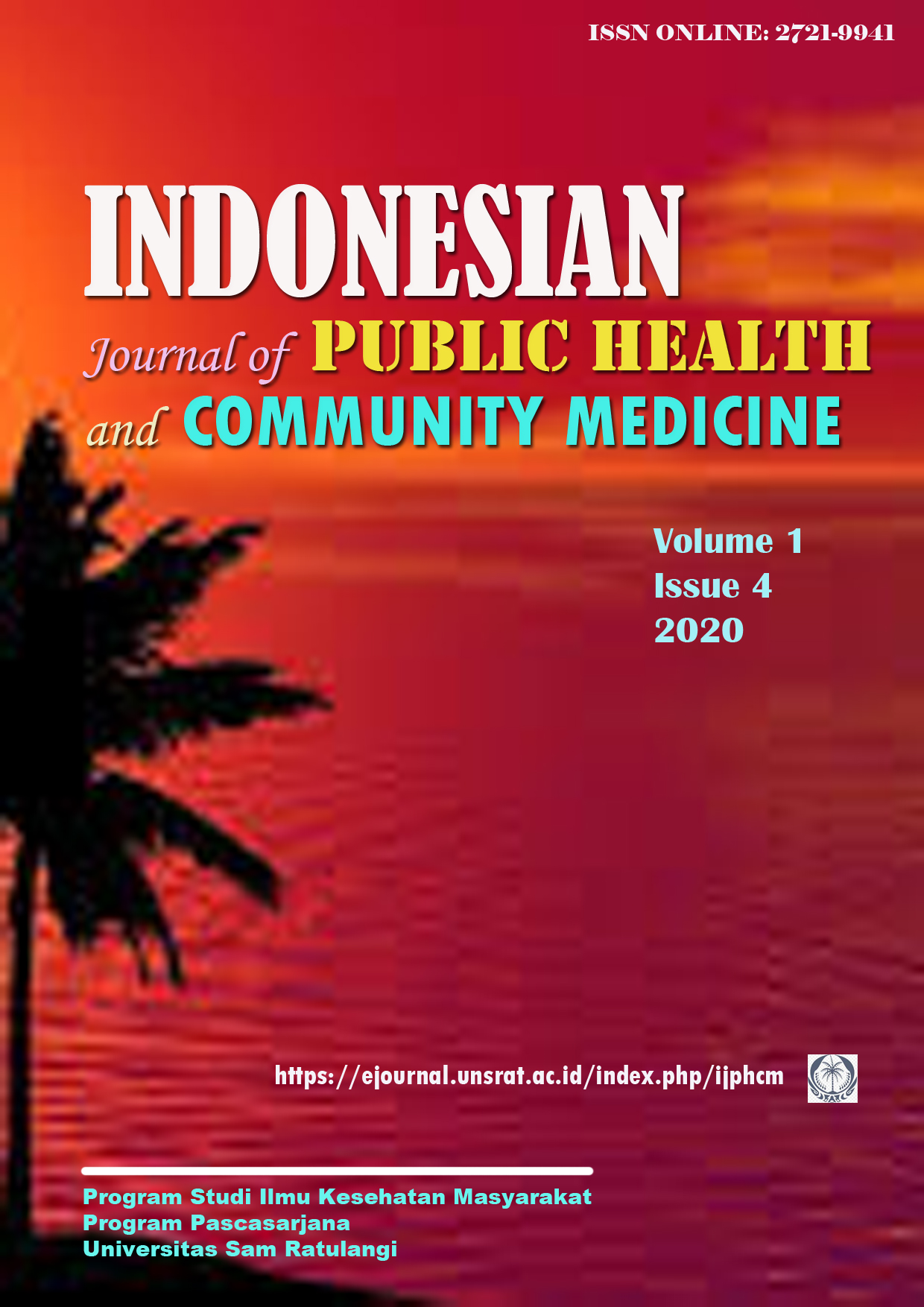Analisis Implementasi Aktivitas Fisik Berdasarkan Health Belief Model oleh Tenaga Kesehatan di Puskesmas
DOI:
https://doi.org/10.35801/ijphcm.1.4.2020.31453Keywords:
Physical Activity, Health Belief Model, Health PersonnelAbstract
Background: Physical activity is bodily movement produced by skeletal muscles and requires energy expenditure and is the fourth leading risk factor for global death. The Health Belief Model is a health behavior change theory and psychological model that is used to predict health behavior by focusing on individual perceptions and beliefs about an illness. The purpose of this research is to analyze how the implementation of physical activity based on the health belief model by health workers at Puskesmas Bahu Manado. Methods: This research was conducted using qualitative methods at Puskesmas Bahu Manado from July to August 2020, using a purposive sampling technique. The target population is all employees at Puskesmas Bahu Manado and the reachable population is representatives of the staff at Puskesmas Bahu who are informants. There were 6 informants in this study who were based on the principles of appropriateness (approppiateness) and adequacy (adequacy). The research instruments used were interview guides, notebooks, voice recorders, and cameras. Data collection was carried out by in-depth interviews and direct observation. Data analysis using content analysis. Results: The results of in-depth interviews and document observations based on the health belief model show that health workers believe that people will be motivated to take actions that will improve their health because they know the risk of diseases that negatively affect their health. Conclusion: The implementation of physical activity based on Perceived Suspectibility, Perceived Severity, Perceived Benefits, Perceived Barriers, Cues To Action and Self Efficacy by health personnel at Puskesmas Bahu has been implemented.
References
Anjali and M. Sabharwal. 2018. Perceived Barriers of Young Adults for Participation in Physical Activity. Curr. Res. Nutr Food Sci Jour. 6(2): 437-449
Aryani, R. 2012. Kesehatan Remaja: Problem dan Solusinya. Jakarta: Salemba Medika.
Attamimy & Qomaruddin. 2017. Aplikasi Health Belief Model Pada Perilaku Pencegahan Demam Berdarah Dengue. Jurnal Promkes. 5(2).
Banday, A.H., F.A. Want, F. Fahad, A. Alris, M. F. Alrayes, and M. J. Alenzi. 2015. Cross-sectional Study on the Prevalence of Physical Activity Among Primary Health Care Physicians in Aljouf Region of Saudi Arabia. Mater Sociomed. 2015 Aug; 27(4): 263-266
Blake, H., and N. Stanulewicz. 2016. Predictors of physical activity and barriers to exercise in nursing and medical students. Journal of Advanced Nursing. October 2016 DOI: 10.1111/jan.
Boopathirajan, R., A. Raveendran, and P. Ayyalusamy. 2019. Study on practice of physical activity among medical interns in a private medical college hospital in Chennai. Int J Community Med Public Health. 6(5):1923-1927
Burke. 2013. The Health Belief Model. Image From: http://currentnursing .com/nursing_theory/health_belief_model.html. diakses pada 4 Februari 2020.

